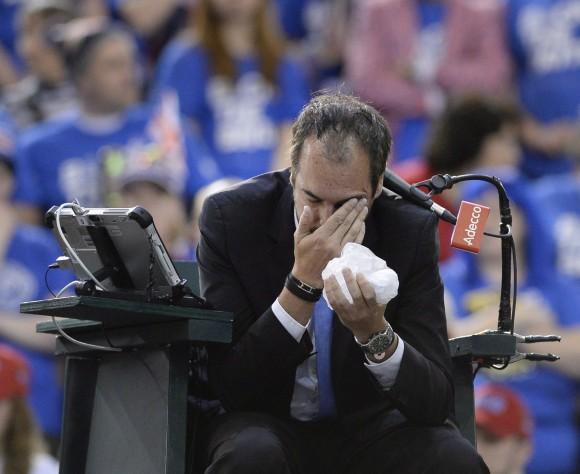OTTAWA—Great Britain beat Canada in an outstanding Davis Cup tie that came down to the decisive fifth rubber on Sunday. Unfortunately, the match ended abruptly when 17-year-old Canadian Denis Shapovalov got defaulted for firing a ball in frustration that hit umpire Arnaud Gabas in the face.
He was down two sets and had just been broken. He meant to fire the ball into the crowd, but it all went horribly wrong. But the rules of tennis are unequivocal.
“I went back and spoke to the referee after I apologized directly to him and luckily he was OK, but obviously it’s unacceptable behavior from me,” Shapovalov said in a brief statement after the match.
“We’re all pretty surprised at what just happened,” said Great Britain’s Davis Cup captain Leon Smith. “I feel sorry for Denis—he’s learned a harsh lesson today.”
“I feel incredibly ashamed and embarrassed and I just feel awful for letting my team down, for letting my country down, for acting a way that I would never want to act,” Shapovalov said. “I can promise that that’s the last time I will do anything like that.”






